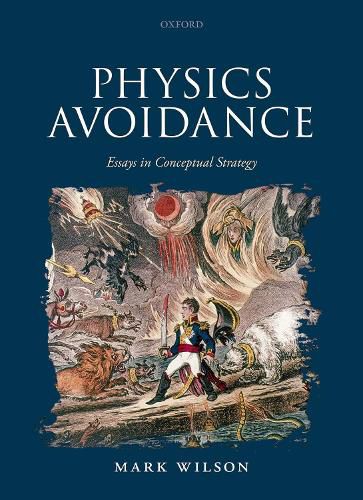Readings Newsletter
Become a Readings Member to make your shopping experience even easier.
Sign in or sign up for free!
You’re not far away from qualifying for FREE standard shipping within Australia
You’ve qualified for FREE standard shipping within Australia
The cart is loading…






Mark Wilson presents a series of explorations of our strategies for understanding the world. Physics avoidance refers to the fact that we frequently cannot reason about nature in the straightforward manner we anticipate, but must seek alternative policies that allow us to address the questions we want answered in a tractable way. Within both science and everyday life, we find ourselves relying upon thought processes that reach useful answers in opaque and roundabout manners. Conceptual innovators are often puzzled by the techniques they develop, when they stumble across reasoning patterns that are easy to implement but difficult to justify. As we collectively improve our inferential skills, we often wander into unfamiliar explanatory landscapes in which simple words encode physical information in complex and unanticipated ways.
At its best, philosophical reflection illuminates the natural developmental processes that generate these confusions and explicates their complexities.
But current thinking within philosophy of science and language works to opposite effect by relying upon simplistic conceptions of cause ,
law of nature , possibility , and reference that ignore the strategic complexities in which these concepts become entangled within real life usage. The nine new essays in this volume illustrate the need for better descriptive tools, through a range of revealing case-studies.
$9.00 standard shipping within Australia
FREE standard shipping within Australia for orders over $100.00
Express & International shipping calculated at checkout
Stock availability can be subject to change without notice. We recommend calling the shop or contacting our online team to check availability of low stock items. Please see our Shopping Online page for more details.
Mark Wilson presents a series of explorations of our strategies for understanding the world. Physics avoidance refers to the fact that we frequently cannot reason about nature in the straightforward manner we anticipate, but must seek alternative policies that allow us to address the questions we want answered in a tractable way. Within both science and everyday life, we find ourselves relying upon thought processes that reach useful answers in opaque and roundabout manners. Conceptual innovators are often puzzled by the techniques they develop, when they stumble across reasoning patterns that are easy to implement but difficult to justify. As we collectively improve our inferential skills, we often wander into unfamiliar explanatory landscapes in which simple words encode physical information in complex and unanticipated ways.
At its best, philosophical reflection illuminates the natural developmental processes that generate these confusions and explicates their complexities.
But current thinking within philosophy of science and language works to opposite effect by relying upon simplistic conceptions of cause ,
law of nature , possibility , and reference that ignore the strategic complexities in which these concepts become entangled within real life usage. The nine new essays in this volume illustrate the need for better descriptive tools, through a range of revealing case-studies.